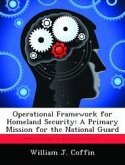The increased rate of Guard and Reserve mobilization associated with the Global War on Terror, specifically to support Operation Noble Eagle, poses a potential threat to the U.S. Army National Guard's ability to retain soldiers and thus sustain end strength and readiness. This concern is supported by the lower rates of retention associated with reserve component personnel mobilized during Operations Desert Shield and Desert Storm. Mobilizations for peacekeeping and similar missions during the late 1990s have not been associated with lower rates of retention; those mobilizations have also been very different from those experienced in 1990-1991 and since 9/11. The majority of soldiers mobilized in the late 1990s received lengthy advance notice of impending mobilizations and were able, to a certain extent, to self-select whether they would participate in by transferring into or out of units designated for mobilization. Many units being mobilized in support of Operation Noble Eagle have not been receiving significant advance notice of mobilizations; furthermore certain types of units, such as military police, have been subjected to repeated mobilizations since 9/11. Therefore there is reason to expect that retention will be negatively impacted. Options to minimize the potential negative impact of mobilization on retention include continuing current mobilization policies, transferring many of the Homeland Defense missions for Operation Noble Eagle performed by the National Guard to the active army, and providing mechanisms for Guard soldiers to select whether or not to participate in one-time or repeated mobilizations to support Operation Noble Eagle. Maintaining current policies will likely result in reduced retention. Transferring Homeland Defense missions in support of Operation Noble Eagle to the active army is not likely due to active duty force limits and competing requirements for active army manpower. This paper recommends the third option, by providing units gr








